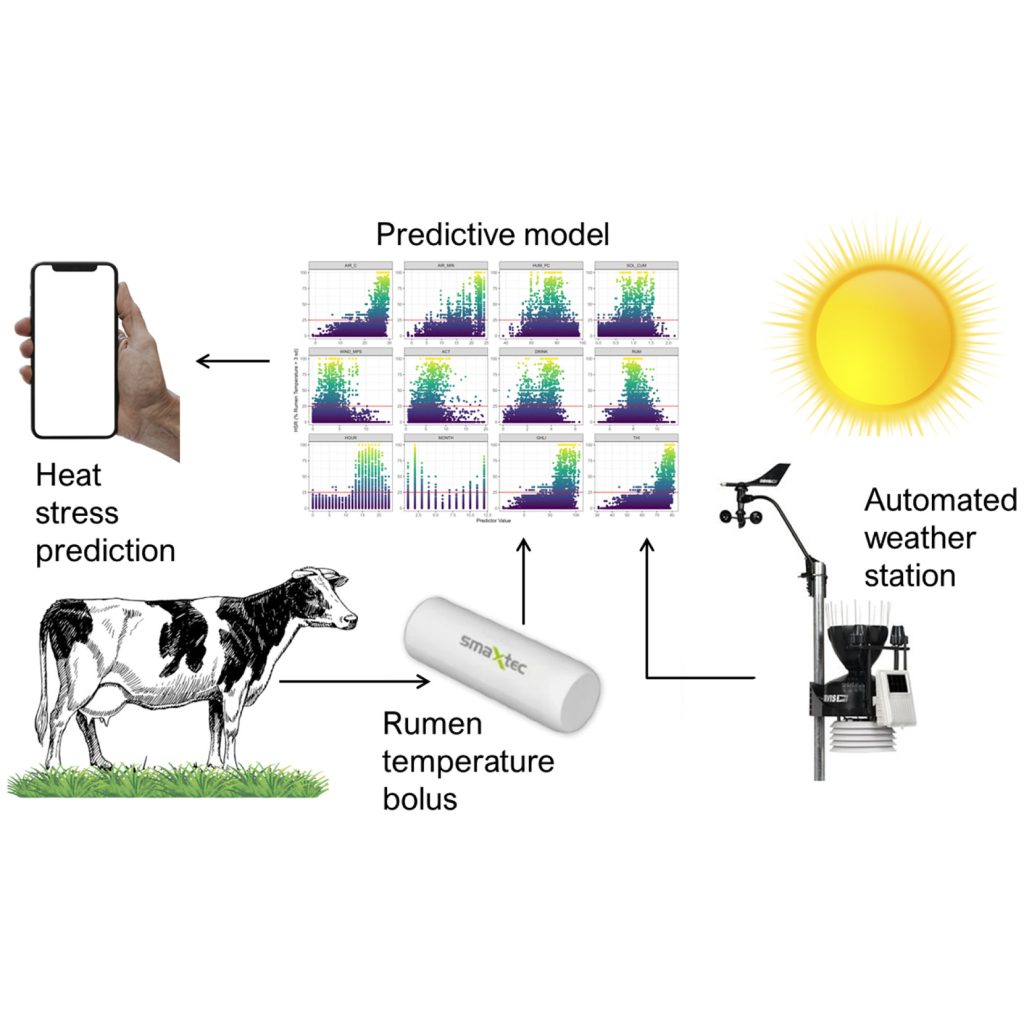Can wearable technology help predict heat stress? Heat stress is a major concern for dairy farmers, particularly in regions where high temperatures and humidity levels persist for extended periods.
When dairy cows are exposed to excessive heat, their ability to regulate body temperature becomes compromised, leading to reduced feed intake, lower milk production, and increased susceptibility to diseases. Understanding heat stress and implementing effective mitigation strategies is crucial for maintaining cow health, productivity, and overall farm profitability.
In the last decade, heat stress has been extensively researched. However, much of the research comes from systems where cows are housed in barns. These studies provide valuable insights, but they do not translate well to pasture-based systems where cows are more exposed to fluctuating weather conditions and mitigation strategies are limited.
DairyNZ, in partnership with AgResearch and Fonterra, are researching the relationship between weather and animal responses to heat stress in New Zealand.
Current research uses on-farm technology (sensory data collected from collars and rumen boluses) to understand a cow’s individual heat stress response and to identify indicators of heat stress such as respiration rate, eating and drinking, activity, rumination and rumen temperature.
Heat stress events are then being matched with automated weather station data (air temperature and humidity, wind and sunlight) collected on or near the farm.
The results of this research will be used in the development of tools and technologies that can monitor and inform more accurately when cows are likely to experience heat stress, and this will support proactive management to keep your cows cool.

Mitigation strategies
Mitigating heat stress in dairy cows can be very challenging, and the effectiveness and feasibility of the strategies outlined below are very farm specific and largely depend on individual farm layout, size and budget. DairyNZ have a detailed checklist for mitigation strategies.